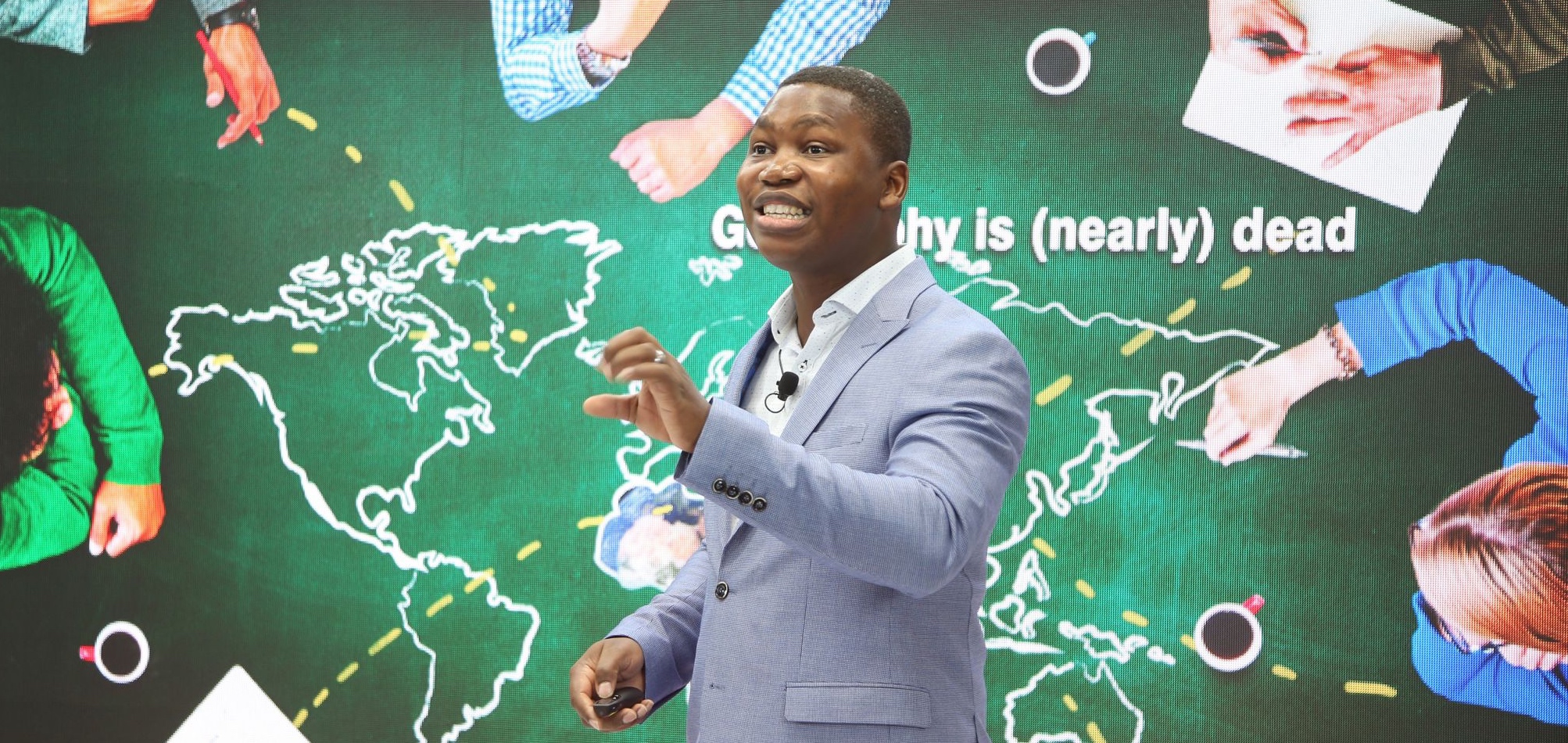Buhle is a South African-born award-winning entrepreneur, speaker and author based in Canada. He is a member of Tomorrow Today Global and has over 20 years of global speaking and consulting to audiences worldwide.
Buhle helps his clients to understand future trends shaping the world of work today, leverage the benefits of diversity with cultural intelligence and show leaders how to create effective, winning cultures by unleashing their greatness.
He is an author of 6 books, including his latest book Unleashing Your Greatness.
Buhle, how would you define cultural intelligence, and what role does it play in building inclusive and effective leadership teams?
Cultural Intelligence (CQ) is a framework that moves us beyond cultural competence (umbrella term for cross cultural acuity) by providing a way to assess, enhance and apply CQ capabilities for success.
Cultural Intelligence (CQ) is the capability to function and relate effectively in culturally diverse situations (in both domestic and international contexts). Cultural Intelligence (CQ) as a framework goes beyond cultural competence (umbrella term for cross cultural acuity) by providing a way to assess, enhance and apply CQ capabilities for success
It’s about actively engaging with and adapting to cultural differences to create meaningful connections and foster collaboration. For leadership teams, CQ is essential because it equips leaders to navigate the complexities of cultural dynamics, harness diverse perspectives, and build trust. Inclusive and effective leadership teams are not just aware of cultural differences—they intentionally leverage them to enhance decision-making, innovation, and overall team performance.
CQ provides a way to assess everyone on the team or across the organisation and help them individually and collectively improve their capabilities for success in multicultural contexts. When teams take the CQ assessment they get measured on the 4 CQ Capabilities that are proven to increase cultural competence.
The four capabilities are: CQ Drive, CQ Knowledge, CQ Strategy and CQ Action.

What practical strategies can leaders adopt to foster inclusivity and high performance within culturally diverse teams?
Leaders can foster inclusion, belonging and high performance by prioritizing three key areas:
1. Cultural Awareness and Education: Invest in training that enhances the team’s understanding of cultural nuances and unconscious biases. Awareness is the foundation for inclusivity. CQ provides excellent assessments and workshops that can help teams deepen their capabilities, while building understanding and collaboration between team members.
2. Psychological Safety: Create an environment where team members feel safe to express their thoughts and ideas without fear of judgment. Leaders must encourage open dialogue and actively seek input from every team member.
3. Adaptive Communication: One of the key lessons from CQ is that people have different Behavioural Preferences that are heavily influenced by cultural norms. These affect how different people communicate, how they prefer to lead/be led, and how they show/not show emotions. As a leader you need to tailor communication styles to accommodate cultural preferences while ensuring clarity. Effective leaders listen actively, ask questions, and seek to understand before being understood.
Additionally, aligning the team’s goals with a shared purpose fosters unity, making cultural differences a source of strength rather than division.
What are the most common challenges leaders face when managing across cultures, and how can they navigate them effectively?
One of the most common challenges is misunderstanding due to differing communication styles, values, and expectations. For example, while direct communication in one culture might be expected, it might be perceived as blunt or offensive in another. Leaders may also struggle with managing power distance expectations, such as hierarchical (high power distance) versus egalitarian (low power distance) cultures.
To navigate these challenges, leaders must:
• Cultivate curiosity about other cultures and be willing to learn.
• Practice humility by acknowledging what they don’t know.
• Develop the ability to adapt their leadership approach to fit the cultural context while remaining authentic.
• Engage in continuous feedback loops, asking their teams how they can improve collaboration across cultural lines.

Can you share an example of a leadership team that successfully leveraged cultural intelligence to drive collaboration and innovation?
One example is a multinational technology (Gaming) company I worked with, where the leadership team spanned continents, including members from North America, Asia, Europe, and South America. Initially, they faced challenges in decision-making because of different approaches to hierarchy and communication. This led to missed deadlines and affected team morale and often led to conflicts between teams.
Through targeted CQ training, the team learned to appreciate each other’s styles. They implemented structured decision-making processes that balanced input from all members and created cultural strategies to bridge gaps in understanding. Over time, this led to more innovative solutions, as team members felt empowered to contribute unique perspectives. One of their breakthroughs came from blending Western design thinking with Asian market insights, which resulted in a product launch that exceeded market expectations.
What has been the most valuable leadership lesson you’ve learned from working with diverse teams around the world?
The most valuable lesson I’ve learned is that diversity is only as powerful as the culture of inclusion that accompanies it. A diverse team on its own isn’t enough—it’s about how you create an environment where everyone feels they belong, their voices are heard, and their contributions are valued.
I’ve also realized that great leaders embrace humility. No matter how much you know, there’s always more to learn from others. When you lead with curiosity, respect, and a willingness to adapt, you unlock the true potential of a team. Diversity becomes a catalyst for growth, innovation, and resilience.
-
To learn more about how Buhle can help you go to www.buhledlamini.com



.png)
%20(2).png)


